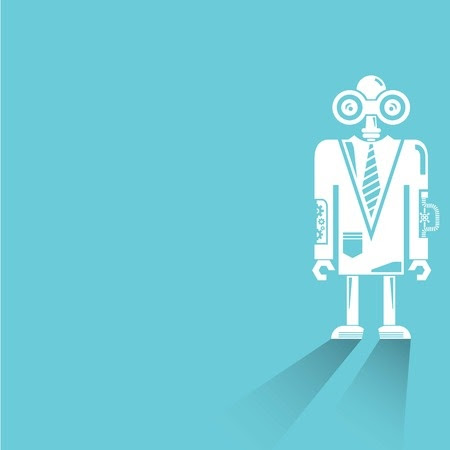 Covering new technology can easily usurp every hour of every day considering how fast tech evolution happens. While mobile devices, virtual gaming, and apps get most of the mainstream media coverage, you don't always get a chance to see how fast robotics evolve. With all the concern in fiction about how far we're taking artificial intelligence, it might ring some alarm bells when you see some of the latest robotic experiments.
Covering new technology can easily usurp every hour of every day considering how fast tech evolution happens. While mobile devices, virtual gaming, and apps get most of the mainstream media coverage, you don't always get a chance to see how fast robotics evolve. With all the concern in fiction about how far we're taking artificial intelligence, it might ring some alarm bells when you see some of the latest robotic experiments.
You've likely already seen videos of robots that can run like human beings or leap like the most limber four-legged animal. Now, the University of Cambridge in the U.K. just created a robot capable of building offspring for itself. What's eerie about this is the robot can build offspring similar to its own DNA, giving a hint of intelligence as well as profound link between robots and human beings.
Ultimately, it says a lot about evolution in general and whether we should evolve ourselves to take artificial intelligence too far. Then again, it might be impossible to stop when we consider what artificial intelligence could do, especially in the world of marketing.
Creating Desirable Traits
The Cambridge robot experiment showed some other startling traits, particularly in how the robot used the process of natural selection to choose the most desirable baby robots. This happened via the robot deciding which baby robot could travel the farthest as a form of who was the fittest.
While this isn't necessarily a self-thinking robot, it likely gives you chills seeing how a robot can build offspring and select which one is more perfect. It's a trait that probably alarms those who don't want a “master race” mentality built into robots, let alone returning in human beings.
Beyond this, though, lies something positive. Allowing robots to build other superior robots like them improves things in the field of engineering. This could eventually lead to vast improvements in all technology for the sake of helping us in everything, including business.
Any dilemma comes in whether we start employing artificial intelligence into similar robots so they start proliferating based on self-awareness. When they start creating offspring for themselves, then we've truly created the problem movies like “Ex Machina”, AMC's “Humans”, and HBO's upcoming “Westworld” try to warn us about.
With Stephen Hawking and Elon Musk recently giving warnings about artificial intelligence turning on us if used in warfare, any thought of robots wanting to build more of their own seems foreboding.
Regardless, it all depends on how much intelligence we give to robots. Should we evolve robots ourselves to a point where they're smart enough to help us without outdoing our own intelligence?
Making Robots Smart Enough To Help Us Evolve
Robots are already used in industrial businesses, which is controversial on its own because of the humans who are out of work. Yet, artificial intelligence could have plenty of benefits in the world of marketing. It could help businesses accumulate data faster for the sake of finding proper demographics. As big data factors into targeted marketing, smarter artificial intelligence could help you gather data faster.
Inbound marketing ideas could also be generated faster with help of artificial intelligence. Letting AI work in tandem with human intelligence can help us make faster decisions on what marketing content could work and which ones wouldn't.
In that regard, hopefully technology will take the robot offspring idea to a point where we control it for improving ourselves along the evolutionary chain. With the business world already more competitive than it's ever been, those in business need the best tools to help them get found and have more relevancy.








As much as technology offers us, I think the fact a robot can build its own offspring is a very scary thing to think about.